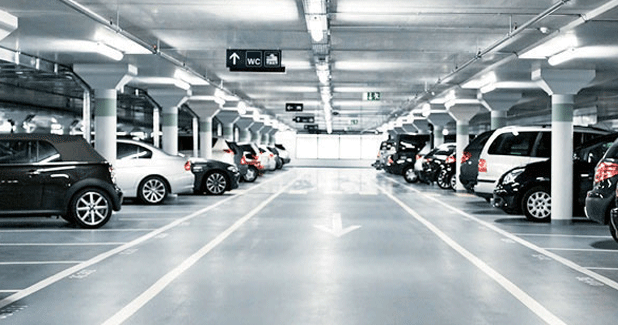Can developers of multi-storeyed buildings sell parking spaces separately, apart from the cost of flats? Advocate SUNIL RAMANI explains the perspective of the Supreme Court.
In our country, there are many multi-storeyed buildings constructed by builders consisting of residential flats or apartments. In such buildings, a person who desires to purchase a residential flat or commercial office premises normally requires car parking. Earlier, builders used to sell parking spaces separately; therefore, the purchaser was required to pay the cost for the flat as well as parking. And builders were charging quite a high price for parking in the metros.
The Supreme Court, in the matter of Nahalchand Laloochand Pvt Ltd vs Panchali Cooperative Housing Society Ltd reported in AIR 2010 SC 3607, rejected the argument of a real-estate development company that it was entitled to sell garages or stilt parking areas as separate flats to owners who intend to use it as parking facilities. A bench of Justices AK Patnaik and RM Lodha ruled that builders or promoters cannot sell parking areas as independent units or flats as these areas are to be extended as ¨common areas and facilities¨ for the purchasers of the flat. Also, the Court said the developer is only entitled to charge for common areas and facilities from each flat purchaser in proportion to the carpet area of the flat. Further, the Supreme Court stated that the developer´s right is restricted to the extent of disposal of flats, shops and or garages, which means any premises included in the floor space index (FSI) can be sold by the developer or promoter. The stilt car parking space is not included in the FSI or is it assessable for corporation taxes.
The Supreme Court examined the provisions of the Maharashtra Ownership Flats (Regulation of the Promotion of Construction, Sale, Management and Transfer) Act, 1963 (MOFA), to determine whether car parking spaces could be sold to purchasers separately. As per Section 2 (a-1) of MOFA, a ´flat´ is defined ¨to mean a separate and self-contained set of premises used or intended to be used for residence or office, showroom or shop, or godown or for carrying on any industry or business (and includes a garage), the premises forming part of a building and including an apartment¨.
According to the definition of a flat as per Section 2 (a-1), it must be a separate unit conforming to the description capable of being used for one of the purposes given in the definition. Separateness of one premises from another premises physically and also in use or intended use for one of the uses specified in the definition clause containing the necessary facilities for self-contained accommodation is ´sine qua non´ for a unit being covered by the definition of flat occurring in Section 2 (a-1).
The Supreme Court has categorically stated that the meaning and significance of the bracketed portion (and includes a garage) should be seen in the context given to the word flat, which is a true indication of intent of the legislature. The phrase ´and includes a garage´ in the bracket does not bring in garage by itself within the meaning of the word flat. If a standalone garage was intended by the legislature to be a ´flat´ within the meaning of Section 2 (a-1), that could have been conveyed by use of the expression ´or garage´ after the word ´business´ in the same breath as preceding uses. The bracketed phrase is indicative of the legislative intention to include a ´garage´ as appurtenant or attachment to a flat, which satisfies the ingredients of Section 2 (a-1).
Under the circumstances, the ´stilt parking space´ is not covered by the term ´garage´, much less a ´flat´, and it is part of common areas. With stilt parking space/s being part of common areas, the Court stated that the only right the developer or promoter has is to charge the cost thereof in proportion to the carpet area of the flat from each purchaser. Being neither a flat nor a garage within the meaning of Section 2 (a-1) of MOFA, such stilt parking space cannot be sold separately. In paragraph 40 of the said judgement, the Court said, ¨The promoter has no right to sell any portion of such building, which is not a ´flat´ within the meaning of Section 2 (a-1) and the entire land and building has to be conveyed to the organisation; the only right remaining with the promoter is to sell unsold flats. It is thus clear that the promoter has no right to sell ´stilt parking spaces´ as these are neither ´flat´ nor appurtenant or attachment to a ´flat´.
About the Author:
Sunil K Ramani is an Advocate in laws relating to taxation and property matters with a focus on NRIs. He has also co-authored books on Redevelopment of Housing Societies, Doing Business in India, NRI Guide and Fema Manual.
To share your legal perspective, write in at feedback@ASAPPmedia.com























